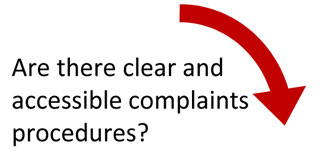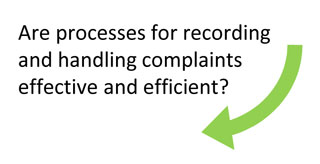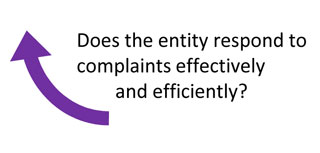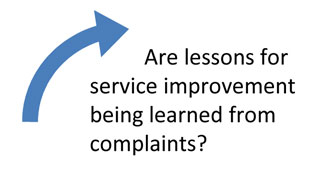A quality service? What are they doing with complaints?
Working in performance audit can sometimes bring back happy memories of playing Cluedo. In both you collect, record, and analyse evidence to come to a judgement. But today it's not Colonel Mustard, with the lead pipe, in the library. No, it's more a case of the Czech author, in the castle, with the dead parrot.

Dead parrots. It's an experience I'm sure many of us can relate to. One poll has voted the dead parrot sketch as the top alternative comedy sketch. I think one of the reasons it's so funny, like all great comedy, is that it takes an everyday experience and develops it until it reaches the absurd. The sketch was inspired by Michael Palin's real-life encounter with a car salesman.
Trying to make a complaint can sometimes make you feel like you're starring in your own dead parrot sketch. Or are your complaint experiences more Kafkaesque, where a simple complaint becomes a fight against what appears to be a complex, infuriating, and senseless bureaucracy? The Castle by Franz Kafka portrays the seemingly endless frustrations of a man's attempts to stand against the system, and the futile and hopeless pursuit of an unobtainable goal. But the reader is also confronted with a deeper truth, the basic human need for recognition and respect - two topics that are important, but often forgotten, for people who complain.
It's pretty clear that any business providing a service – public or private – can't deliver a high-quality service without a decent system for handling complaints. This year, we're looking more closely at service delivery in the public sector, so examining agencies' complaints set-up makes a lot of sense. (The other side is looking at case management – more on that later!)

Some organisations believe that customer complaints are a bad thing. And that logic leads them to believe that no complaints equals no problems. But if your organisation delivers services to people, it's unrealistic to expect that you will deliver perfectly to all your customers every time. So, although it seems quite clichéd, a complaint is really a gift – an opportunity for the organisation to do something better.
When businesses manage complaints well, this is (in a nutshell) what they do:
- Make it clear and easy for people to complain.
- Record those complaints properly.
- Respond properly.
- Improve their service based on what they learn from the complaints.
There's a stack of information around already on what "properly" looks like, including an international standard on complaints and the work of the Office of the Ombudsman on effective complaint handling. When this process works well it becomes a virtuous circle of complaints leading to service improvements, a “feedback loop”, hopefully reducing future complaints.

For our work to be useful, we picked agencies that deal directly with a lot of people – so we're taking a detailed look at what the Accident Compensation Corporation and the Ministry of Social Development do with complaints.
It's vital that we find out what the agencies' complaints systems feel like for people who are on the receiving end of them – an individual's experience of the complaints system can provide us with useful information on the effectiveness of the complaints system as a whole. So we'll be talking to some of the people who've made complaints. However, we can't be Erin Brockovich and advocate for individual members of the public. We'll be really clear about that, and hope that people will still want to talk to us.
We'll be starting our fieldwork in February, and it's going to be busy – here's just some of what we've got planned for both ACC and MSD:
- talking to service users to ask them what they think about making a complaint
- talking to people from throughout the agencies and asking them heaps of questions;
- poring over documents to understand how it all works in theory – and comparing that with what people told us about what they do in practice;
- looking at the letters or other communications they send people and assessing how easy those messages are to read and understand.
Essentially, we're going to be looking for evidence that the "feedback loop" is intact – that people can easily make complaints, which the agencies properly record and respond to, and use to improve their service.

It's probably easy for a private business to understand the importance of handling complaints as well as learning from them because the profit motive drives them. Good customer service is simply good business. Is it harder for a public entity that's in most cases a monopoly provider or delivering services without the profit motive attached to them? Do complaints still form part of that essential "loop", or are they simply responded to and counted for the graphs in the annual report, if they're reported at all?
Keep an eye out for the next post for more of our thoughts about complaints.
